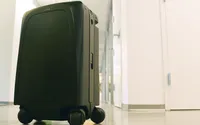The Ovis Smart Luggage Followed Me Around So Well I Might Buy It
Ovis is a suitcase that uses AI to follow you and avoid obstacles.
Here at Tom’s Guide our expert editors are committed to bringing you the best news, reviews and guides to help you stay informed and ahead of the curve!
You are now subscribed
Your newsletter sign-up was successful
Want to add more newsletters?

Daily (Mon-Sun)
Tom's Guide Daily
Sign up to get the latest updates on all of your favorite content! From cutting-edge tech news and the hottest streaming buzz to unbeatable deals on the best products and in-depth reviews, we’ve got you covered.

Weekly on Thursday
Tom's AI Guide
Be AI savvy with your weekly newsletter summing up all the biggest AI news you need to know. Plus, analysis from our AI editor and tips on how to use the latest AI tools!

Weekly on Friday
Tom's iGuide
Unlock the vast world of Apple news straight to your inbox. With coverage on everything from exciting product launches to essential software updates, this is your go-to source for the latest updates on all the best Apple content.

Weekly on Monday
Tom's Streaming Guide
Our weekly newsletter is expertly crafted to immerse you in the world of streaming. Stay updated on the latest releases and our top recommendations across your favorite streaming platforms.
Join the club
Get full access to premium articles, exclusive features and a growing list of member rewards.
Editor's Note: Updated on May 30 at 4:00 p.m. ET with video of my hands-off experience with the Ovis.
Walking around our office, with a suitcase rolling itself by my side, I attracted a few shocked looks, as if colleagues' internal monologues simply read "WHOA!" That bag was a pre-production model of Ovis, a $399 (available for pre-order now on Indiegogo) smart suitcase that is actually pretty smart.
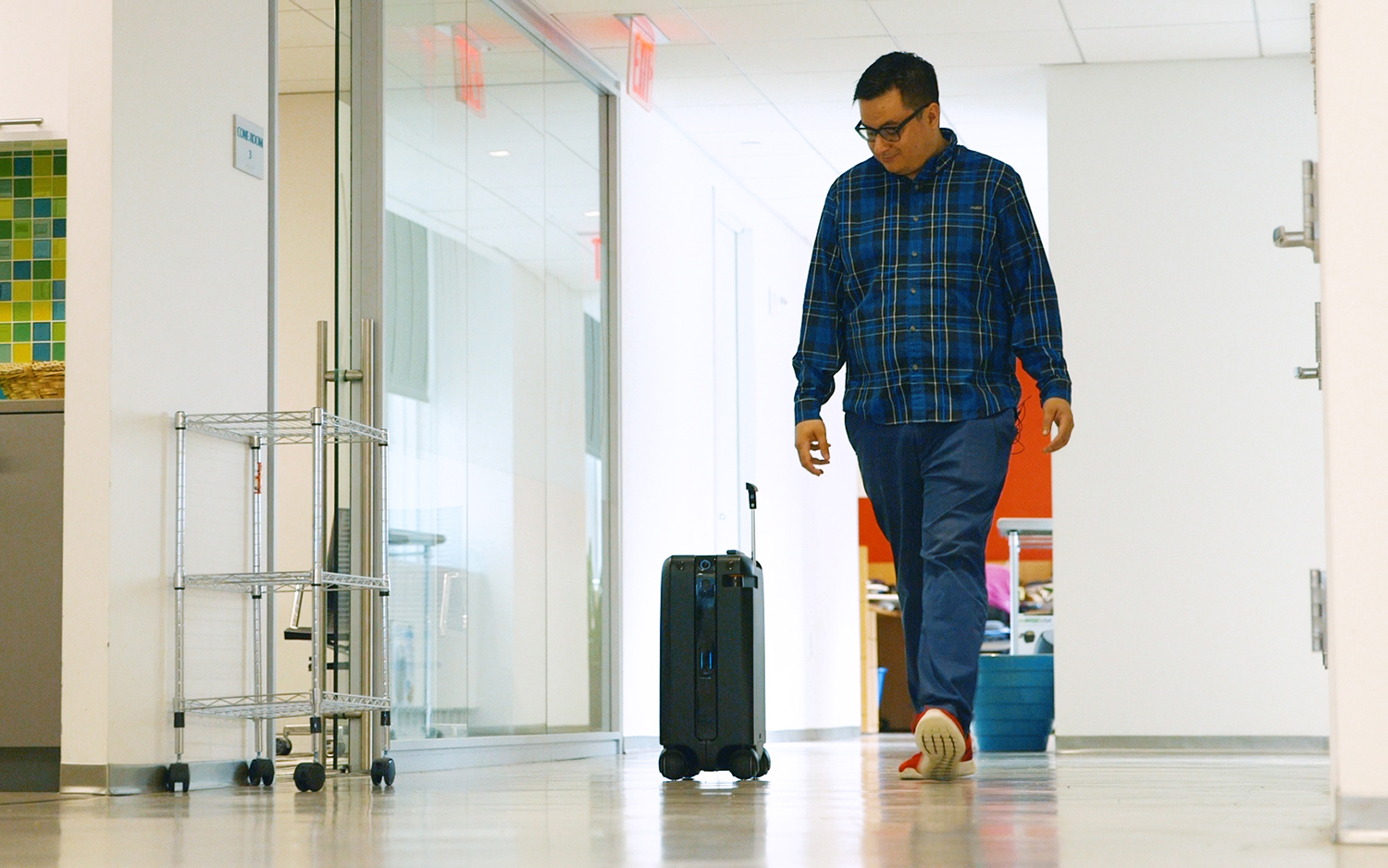
I say 'actually' because the Smart Luggage industry, up until now, has been comprised of bags with features that were more convenient than they were intelligent. The Ovis (which we first saw at CES 2018) is different, as it uses cameras and AI to follow you around, by your side, like a good dog. I even found myself saying "come on, Ovis, that's a good bag!" to it as I walked it up and down our halls.
MORE: Yes, You Can Take Smart Luggage on Planes, But Only This Kind
The Ovis I tested featured three cameras: one on its front (the side that faces forward as it moves), another inside of a groove on its back and a third in its handle. I'm told the final production version will ditch the inset camera inside of the groove, and that the handle will gain a touch sensor that activates manual mode, disabling autonomous movement.
My time with Ovis wasn't all whoas and wows, though. Ovis is rated for a maximum speed of 6.2 miles per hour. But I found I had to adjust to its movements, as it was slower than I typically walk (what can I say, I'm a native New Yorker). I also picked it up by its handle as I turned tight corners.
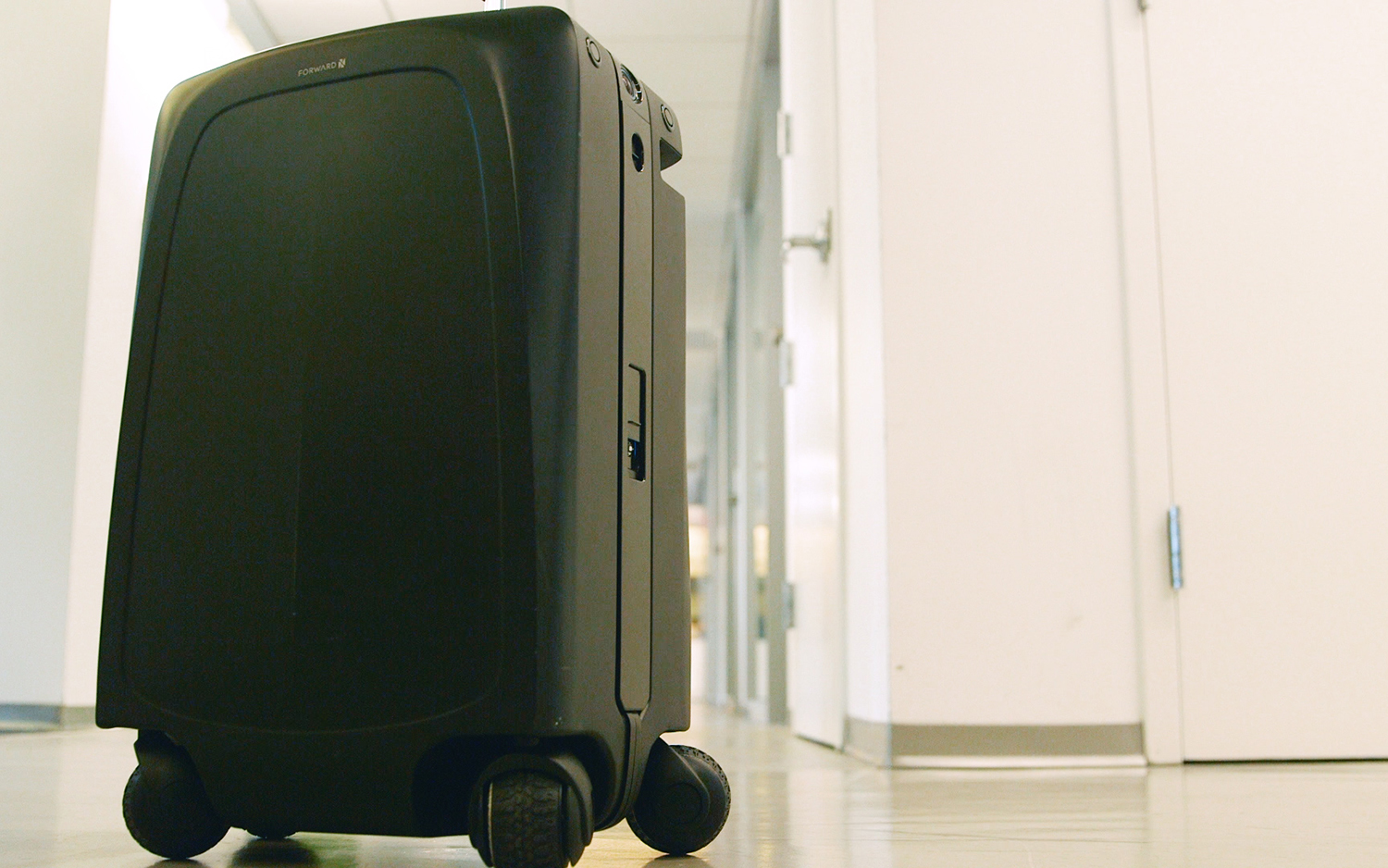
At least you won't need to worry about Ovis' path, as the AI tech inside the friendly suitcase has built-in obstacle avoidance technology.
Get instant access to breaking news, the hottest reviews, great deals and helpful tips.
Ovis Suitcase
The Ovis' battery is rated to last 4 hours, approximately 13.7 miles travel, and needs 2.5 hours to completely refuel.
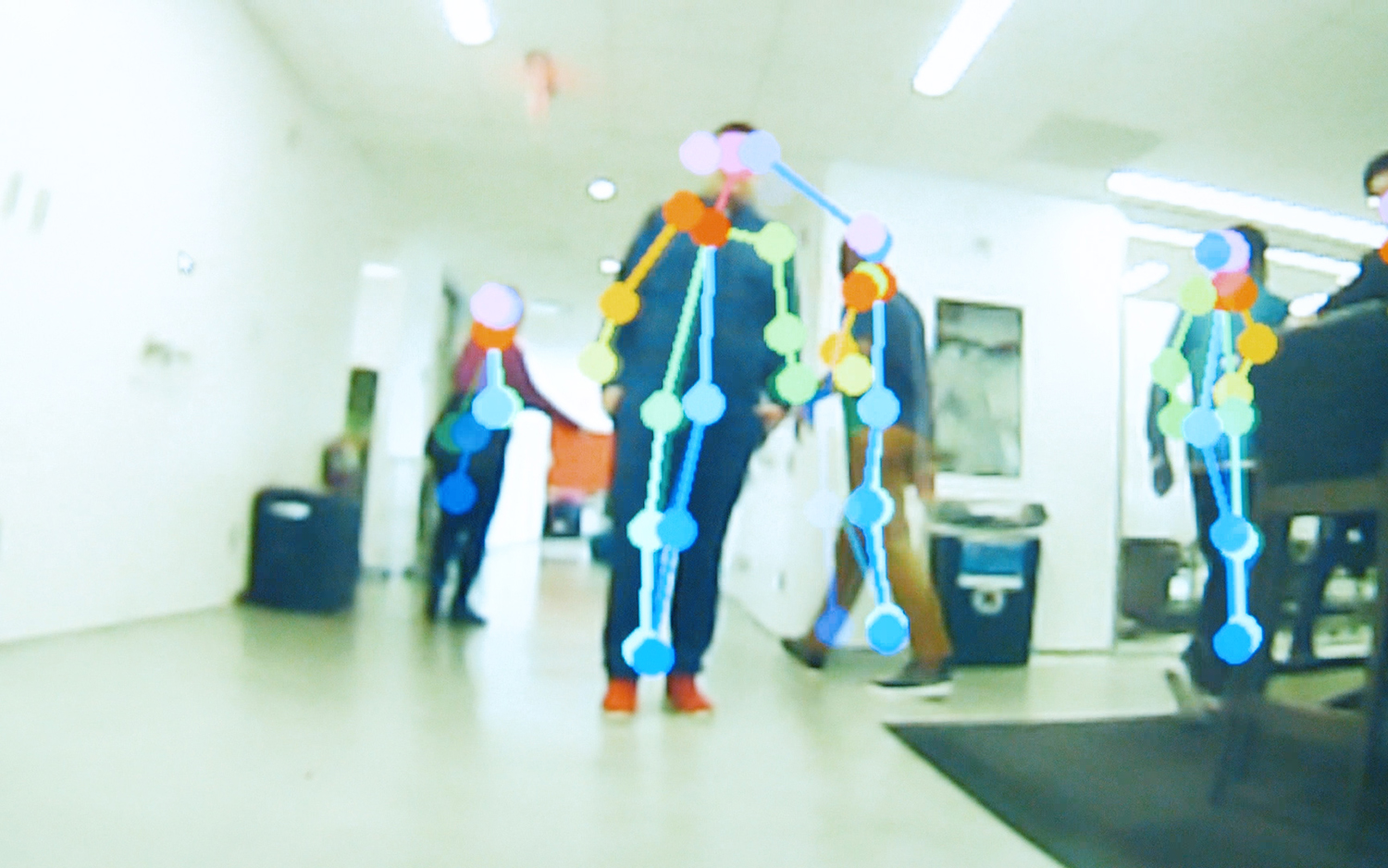
But the big news, aside from the Ovis name (we knew it as CX-1 originally), is that the bag no longer trails you from behind, but instead follows you from your right side. This answered my biggest concern, of how could you walk around an airport with this robot bag behind you, out of your sight, where it could be stolen by anyone.
Now that Ovis is in your peripheral vision, it makes a lot more sense to me. Walking around our office, I pictured myself at the airport during the holiday travel season, with a coffee in one hand, my phone in the other and my eyes checking on Ovis.
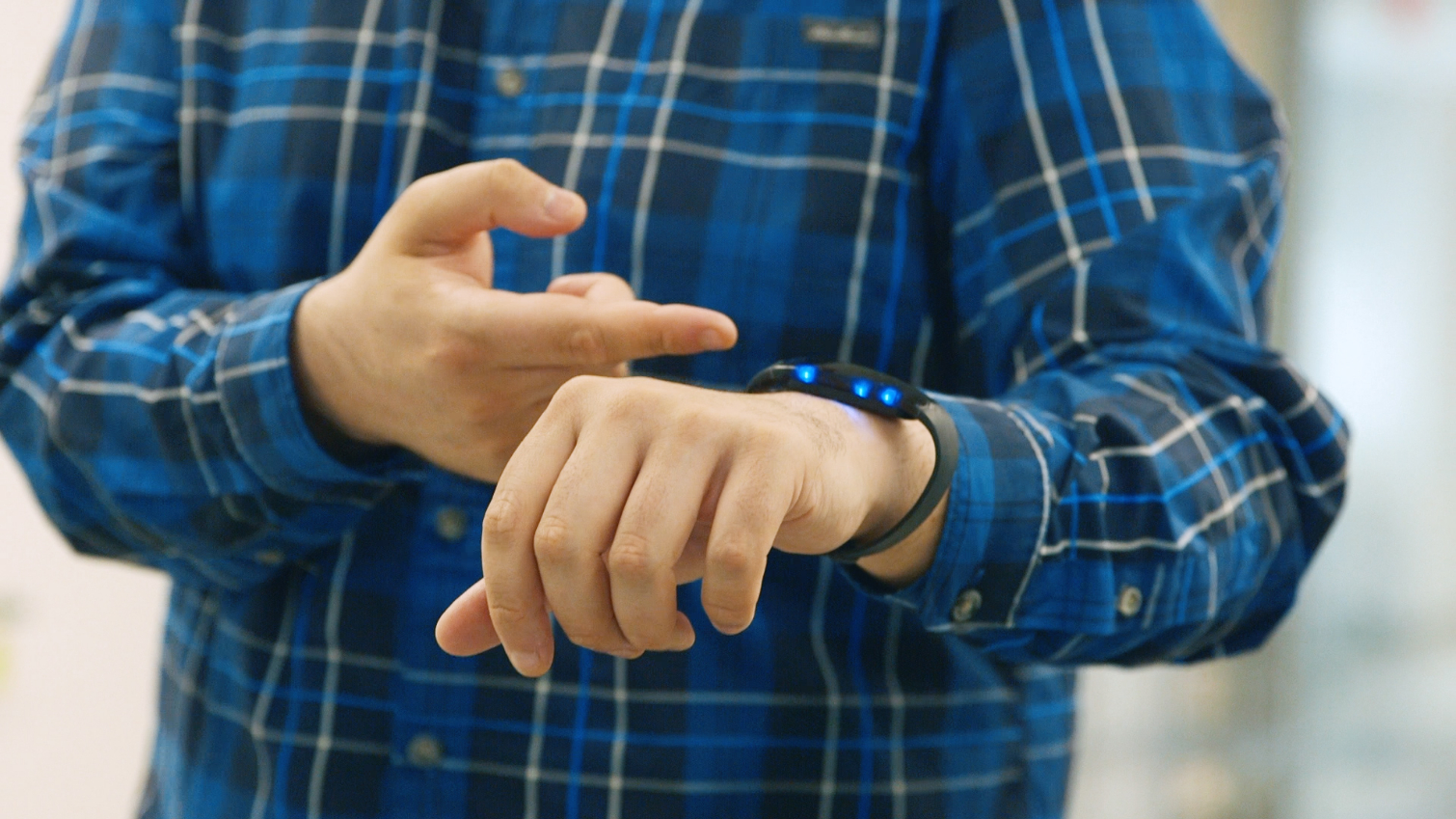
Ovis comes with a bracelet, that gently vibrates and lights up if you get more than 2 meters away. And if it does get lost? Built-in GPS and 3G cellular technology allows you to track its real-time location.
Similar to other smart (and dumb) luggage, it's got a TSA-approved lock. Ovis' lock is smarter, though, as it automatically unlocks when its wristband is within a preset range.
Ovis has a ton of other perks, with a 96-watt hour removable battery. That that means the carry-on should meet the restrictions blamed for putting companies such as Raden and Bluesmart out of business. That battery connects to the pair of USB ports at the top of the suitcase, hidden under a plastic flap that clicks down to open. The Ovis also hasIt's also got the self-weighing technology seen in Raden's luggage.

You'll train Ovis to follow you with its app, and I saw a demonstration of how the AI creates wireframe models of the people it observes and follows.
The polypropylene / carbon fiber Ovis measures 21.6 x 14.9 x 8.7 inches, which should fit most airplanes' carry-on rules, as the advertised 22 x 14 x 9 inches measurements for most airlines aren't as strict as you might think. I brought the 22.7 x 14.7 x 9.6-inch Away Bigger Carry-On With Pocket onboard a Delta flight from New York to New Orleans without anyone batting an eye or raising a concern.
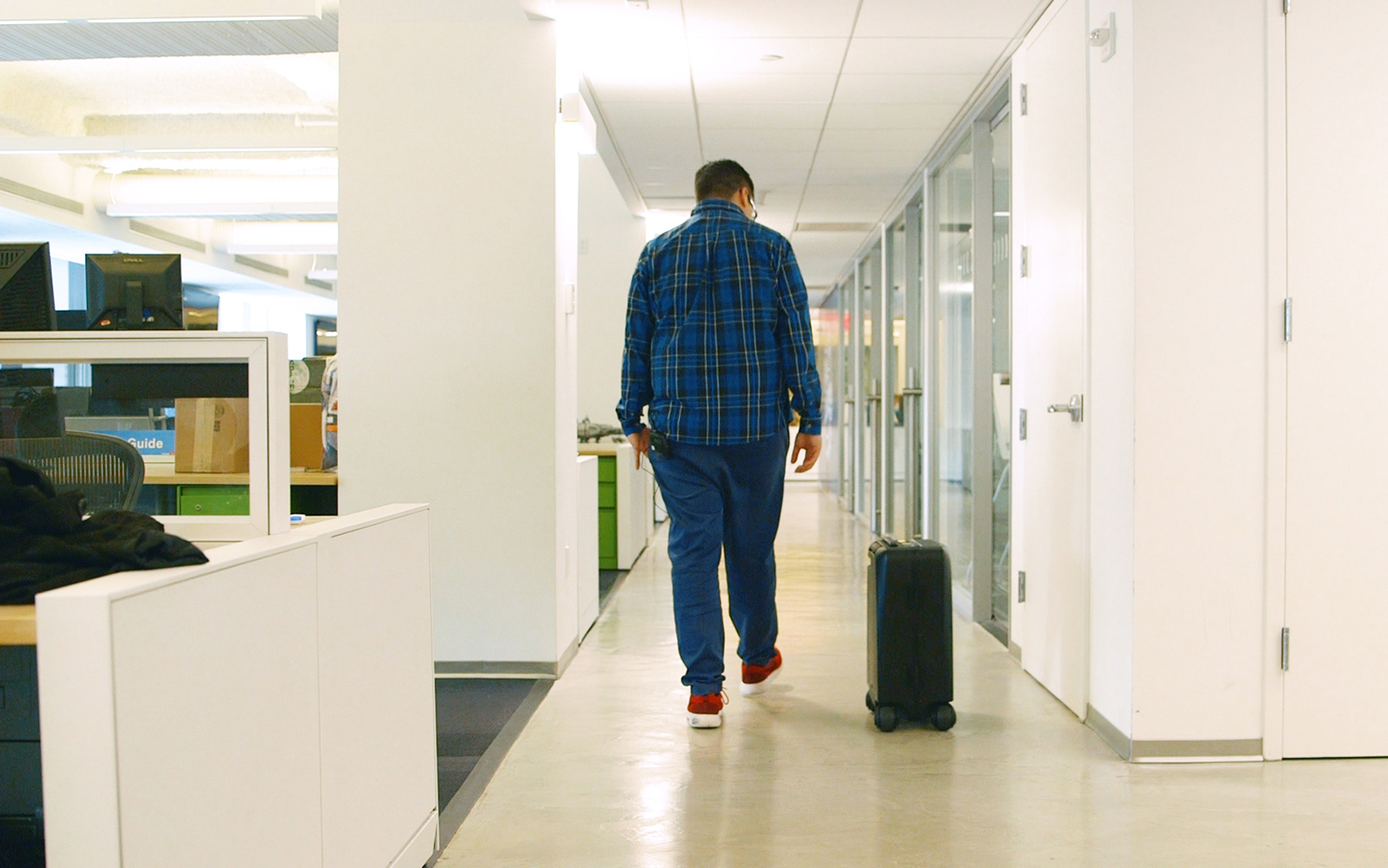
I'm really seriously looking forward to getting a more-finished production-quality review unit delivered to our office, which should happen just in time for the holiday season (pre-orders will ship 6 months from now). I already like the Ovis' feature -set enough to consider it, but if its steering improves, I'll definitely be buying one.
Credit: Tom's Guide

Henry was a managing editor at Tom’s Guide covering streaming media, laptops and all things Apple, reviewing devices and services for the past seven years. Prior to joining Tom's Guide, he reviewed software and hardware for TechRadar Pro, and interviewed artists for Patek Philippe International Magazine. He's also covered the wild world of professional wrestling for Cageside Seats, interviewing athletes and other industry veterans.
 Club Benefits
Club Benefits










